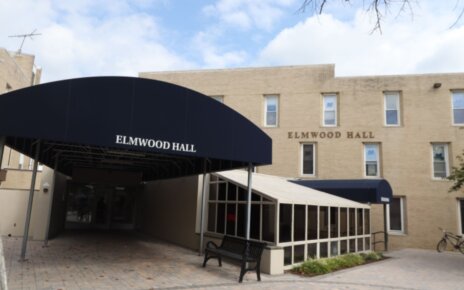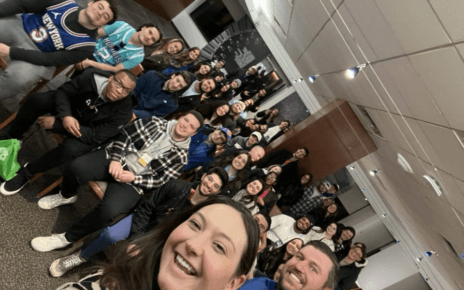Monmouth University students from the Kislak Real Estate Institute and Leon Hess Business School led the competition for the second straight quarter of the 2017 Real Confidence University Challenge (RCUC), moving up to fifth place overall.
The University posted an “impressive” 6.53 percent total return, according to the RCUC website, which allowed them to jump four spots to join the top five. Monmouth also had the top public portfolio in the competition – according to the RCUC website, the “back-to-back quarterly wins, [being] up four spots, and the all-in on industrial strategy is paying off.”
The University is competing against 38 other schools, including the University of Georgia, which is currently in first place, and Rice University, which is in second place. Texas Tech University holds the third place in the competition, and Temple University is in fourth.
“The team had the highest points for the third quarter of 2017, following its first place showing in the second quarter, and has now moved up to fifth place for the full 2017 year,” said Peter Reinhart, Esq., the Director of the Kislak Real Estate Institute and NJAR/Greenbaum/Ferguson Professor of Real Estate Policy. “The team’s selection to invest heavily in the industrial sector paid off yet again.”
According to Reinhart, the team’s analysis of various real estate sectors and anticipation of strong growth is producing “excellent returns.”
“Students benefit from this competition in several ways,” said Andreas Christofi, PhD, a professor in the department of economics, finance, and real estate, who nominated some students to the team and advised them to invest 100 percent of their funds in industrial equities. “They learn how risk has its rewards, since investing in a risky portfolio paid off for them. Second, they get to practice their team skills and learn from each other. Third, they see that Monmouth is not inferior to any other school, and that raises their esteem and confidence.”
The competition, created as an education tool for universities as an alternative teaching method, aims at introducing real estate investing skills to students. With the competition, which is sponsored by the Altus Group, faculty are able to pursue a distinctive approach to education, according to the RCUC website.
Student teams were allocated a hypothetical one billion dollars in real estate assets in December 2016; the assets will be tracked throughout 2017. There is now only one quarter remaining in the competition.
So far, the students have earned $5,000 in prize money, according to Christofi, with potential to earn an additional $30,000 if they win first place.


